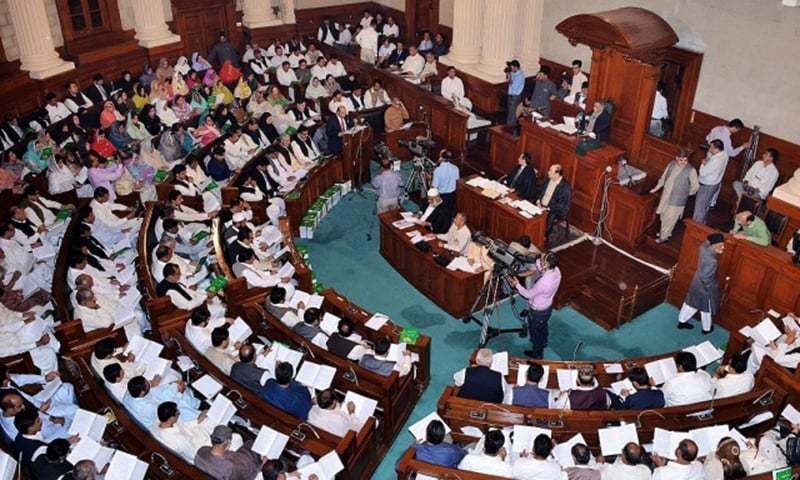The passage of the Punjab Tahaffuz-i-Bunyad-i-Islam (protecting the foundation of Islam) Bill 2020 by the Punjab Assembly has come under tremendous criticism by various sections of society with a Pakistani Federal Minister saying that such trends would plunge the country into “sectarianism and religious extremism”.
In a tweet, Federal Minister for Science and Technology Fawad Chaudhry said, “An environment has been created in the Parliament, particularly in the Punjab Assembly, where every [other] member comes up with a motion on a daily basis warning that Islam will be in danger if it is not passed. This is a dangerous trend and it will plunge us deep into sectarianism and religious extremism.”
In response to another tweet criticizing the act of passing the bill making publishing of objectionable and/or hate material punishable, Chaudhry stated: “Islam in Pakistan is neither facing any danger from TikTok nor from books. We are facing a danger because of the division on the basis of sectarianism and extremism. Those living in palaces must exercise caution and do not fan the fire that burn themselves.”
National Party’s Punjab president Ayub Malik in a statement said the new law would fan sectarianism besides stoking hatred against minorities in the largest and most populous province of the country that had a history of religious hatred against the marginalized sections of society.
Malik said the country had already suffered a lot due to the retrogressive policies of military dictator General Ziaul Haq that encouraged obscurantist elements of society to badly damage the vision of Jinnah’s Pakistan.
“Now with this new law, the concept of Jinnah’s Pakistan has been pushed towards the verge of complete destruction, paving the way for more hatred against minorities and other sections of society,” he added.
Chief of Tehreek Nifaz Fiqh Jafaria Agha Syed Hamid Ali Shah Moosavi in a statement termed the bill contrary to Quran and Sunnah and an attack on the Constitution.
He also announced that peaceful protests would be held across Pakistan against this law.
“We will not shy away from taking any big step to save the foundations of the religion and the motherland,” he said, demanding that “this vicious bill be withdrawn forthwith”.
Agha Moosavi said the passage of the bill just before Muharram was aimed at thwarting the efforts of the government to maintain law and order during the month.
The Women Democratic Front (WDF), also expressed deep concerns over, what it called, “the blatant attempt at increased state censorship through the Tahaffuz-i-Bunyad-i-Islam Bill”.
It said the bill was a transparent ploy to attack the already shrinking space for intellectual independence and religious freedom by threatening to monitor and censor books, magazines, pamphlets and other reading material published and imported into Pakistan in the name of protection of religion.
The WDF called upon the Punjab governor to not ratify the bill and condemned those political parties which claimed to fight for the rights of minorities and yet voted for the bill.
“It is no secret that religious, intellectual, academic and political freedoms are under attack in Pakistan. Efforts to silence academics, journalists and political workers through force have been increasing while rightwing forces are making it harder for non-Muslim Pakistanis to practice their religion freely,” the statement said.
The law passed on July 22 makes “desecration” of any prophet, any of the four divine books, family and companions of Prophet Muhammad (peace be upon him), as well as abetting or glorification of terrorists, and promoting sectarianism in any book punishable with a maximum of five-year jail terms and up to Rs 500,000 fine. It makes the use of the words “Khatam-un-Nabiyyeen” mandatory whenever the name of Prophet Muhammad (peace be upon him) is mentioned.








